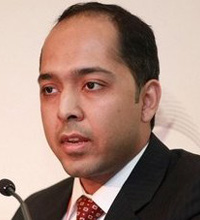Now If Only Every Family Business Was a Fairy Tale!
A really fictional case for this issue! Thanks to Asher Noor for “Now If Only Every Family Business Was a Fairy Tale!” And for reminding the readers that fiction is usually not stranger than truth!
Yours in Practice,
The Practitioner
Once upon a time there was a King (who just like King Lear) had a succession planning issue.
Well, despite bumbling up the entire process, at least King Lear was receptive to the idea of retirement. The King in our story was a long way off from contemplating retirement of any sort. And to be fair to him, once you meet the second generation, you might actually have some sympathy for him!
The heir apparent to the throne aka the “Family Business” was a sincere yet weak Fredo like the one in The Godfather novel, followed by a Romeo wanting to wed a Juliet of the neighboring warring kingdom! To round off the second-generation options was the typical Princess Jasmine who was head over heels in love with Aladdin, the commoner.
For the purpose of this story, we’ll ignore the cousin consortium that could have come into play — that ruled elsewhere — but might have been open to the idea of merging. But given their incompatible past, however, that would have been a messy genogram!
The trusted advisor in this story is the Grand Vizier, who despite being a non-family member, usually got into a triangulation situation when the King and Queen had disagreements regarding affairs of the state – disagreements that needed conflict resolution therapy.
With such a sorry second generation in the offing, it was difficult to broach the subject of succession planning with the King. He wanted nothing to do with it. Succession planning to him was akin to planning his own funeral.
If one looked around, the Grand Vizier was the obvious choice to lead the kingdom in the changing and testing times. But as a non-family member, he failed the test for rules for entry into the family business. The rules was unwritten and unspoken but could be easily invoked to the family patriarch’s advantage whenever required. They were very flexible rules but the flexibility was largely directed towards those with the right surname for whom the door was always open!
The Queen and the kids wanted nothing to do with the Family Business of running the kingdom and everything to do with ensuring that its largesse never stopped. They all considered themselves free spirits, and the King had known this very early on. But instead of this free spirit orientation causing him to put in measures to ensure a more professional management take over, he decided to live forever, and thus succession was not a topic up for consideration.
But then something happened. While on a visit to a faraway land for a hunting expedition with fellow Kingdom Kings, he heard some of his peers talk excitedly about the newest thing on the block. They were having family business advisors come in and provide estate and succession planning advice. Our King initially thought, “Bah! What can they tell me about my own business? I have been doing it long before they were conceived.” But then the more he listened to his peers, the more inadequate and ill prepared he started to feel. And thus, just like that, he resolved to get a family business advisor for himself as well.
Once back, he immediately summoned the Grand Vizier and ordered that the best family business advisor in the Kingdom should be hired ASAP. The Grand Vizier suggested that hiring a family business advisor is a slow and steady process where factors such as expertise, compatibility, references, track record and network of the advisor comes into play as well.
Furthermore, he suggested that on-boarding some of the stakeholders in this decision before the advisor walked in for the first time, would be a good idea. While the Grand Vizier was saying all the right things, his advice had the opposite effect. It sullied the King’s excitement, made him realize that this was serious work and a lot of thought is needed before looking for outside help.
And then days turned to months and seasons changed. Years went by and the enthusiasm that the King had shown upon his return from the hunting trip many years back had simply extinguished.
The next twist in the tale comes when the stroke struck. It temporarily incapacitated him but finally made him realize that what he had been putting on the backburner all along was now staring him in the eyes and could no longer be ignored.
After talking to a few shortlisted advisors, Sir Knight got the royal nod. He brought with him three circles and as a first step, tried to explain the concept of how family, business and ownership form and overlap in the three circles of family business. Since this presented almost seven types of stakeholders in the Family Business, the King was greatly perturbed.
Meanwhile, the Grand Vizier understood where Sir Knight was coming from but, despite having the ear of the King, there were topics he himself deemed too hot to broach. He felt the outside family business advisor stood a much better chance in helping the King see the stakes and the issues at stake.
The next thing Sir Knight talked about was documenting the mission, values and vision for the Kingdom that the King postulated. The King himself was amazed when they were discussed and documented for the first time. It actually helped get him a fresh perspective.
A more careful review of the stakeholders revealed that nepotism was rampant, sibling rivalry was at play, the governance model was broken, scapegoating was common and paternalistic feelings were clouding many a judgments.
Sir Knight took stock of all of these moving parts and decided that to best way forward would be to call a family meeting. The King had created a family council a few years back, but it had never really met officially — yet ironically the members saw each other at the dinner table every night.
It took Sir Knight some three years of going back and forth, all the time earning the trust of the family members, before he was able to steer the family business to a structure that ensured that it could be put on autopilot from a legal and governance aspect. He did this by bringing in a board of advisors, skilled professionals for various operating divisions, independent directors and dismantling the shackles of homeostasis, brick by brick.
Thanks to the efforts of the Sir Knight over the years, when the King passed away peacefully in his sleep, the documented governance mechanism, trust structures and letter of wishes, etc. were already in place. The transition was smooth. The beneficiaries got what they wanted (without the headache of administering it), which was an annuity-like return, and the Grand Vizier became the next King despite not having the right surname and led the Kingdom to even greater heights.
I think fiction is a great place to start finding answers for real life dilemmas.
About the contributor:
 Asher Noor is CIO & CFO with AlTouq Group, Saudi Arabia, where he looks after the accounting and finances of Group holding, subsidiary and associate structures, banking relationships and various investments. He also represents the AlTouq Group on the board of several international companies. 2014 recipient of the FFI/EDHEC GEMBA scholarship, Asher can be reached at asher@altouq.com.
Asher Noor is CIO & CFO with AlTouq Group, Saudi Arabia, where he looks after the accounting and finances of Group holding, subsidiary and associate structures, banking relationships and various investments. He also represents the AlTouq Group on the board of several international companies. 2014 recipient of the FFI/EDHEC GEMBA scholarship, Asher can be reached at asher@altouq.com.
To apply for one of three FFI/EDHEC GEMBA scholarships for 2015, go here – deadline is June 20!
Disclaimer: This is a blog post written as a guest author for the FFI Practitioner, in my personal capacity.




